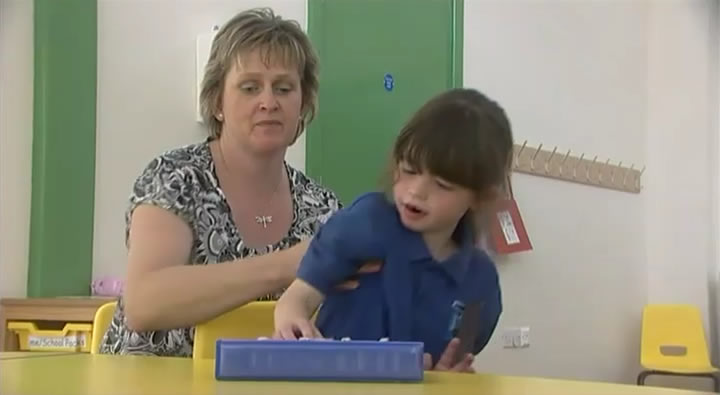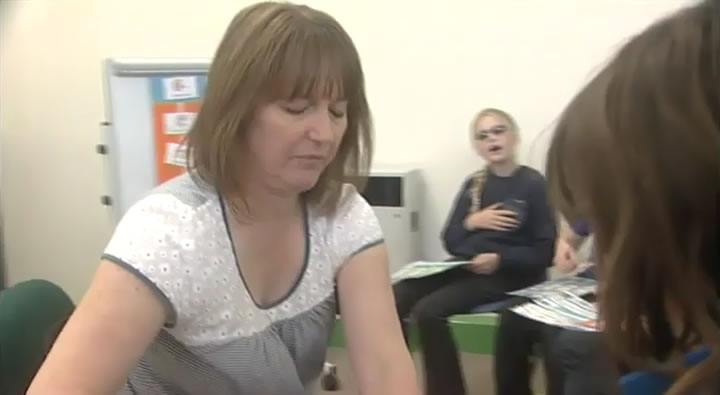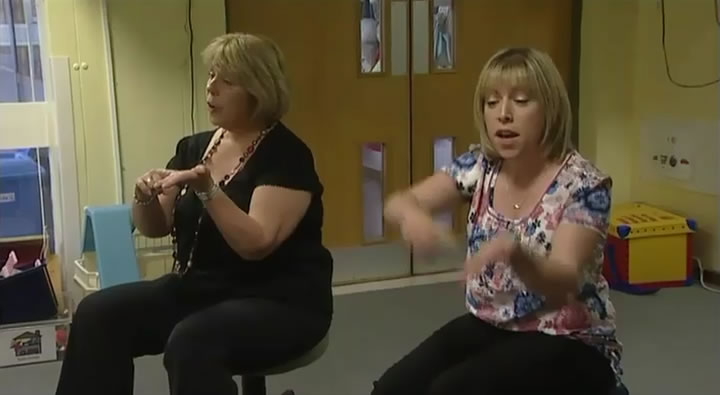
Sign and symbol systems were developed for use with children with learning difficulties.
They act as a visual hook to support comprehension and expression.
They provide additional cues for the spoken word but are not designed to replace speech.
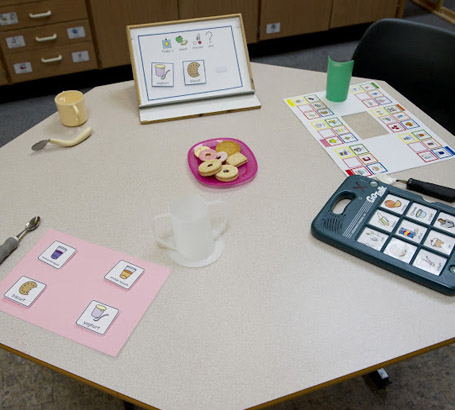
The Picture Exchange Communication System (PECS) was developed by Bondy and Frost in 1994. It is a communication system that teaches functional communication to children with limited speech, enabling them to initiate communicative interactions within a social framework.
Listen to Angela, a communication coordinator, explaining how symbol exchange is used to enable children to make requests.
Answer these questions:
- How is symbol exchange used in the school?
- How are single symbols introduced?
- How does learning progress?
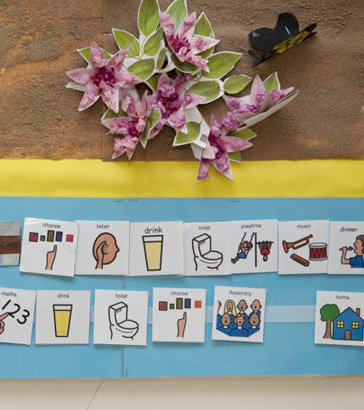
Your answers may have included:
- Symbol exchange used in two ways – as a communication system for children with little or no speech and to support children with SCLD.
- They start with a motivating item and children learn to request the item using a symbolic representation of that item. Language is kept simple.
- Children progress to discriminating between two or more symbols, so they can request a range of items. Eventually, children build up sentences using the symbols. A range of sentence starters extends their communication.
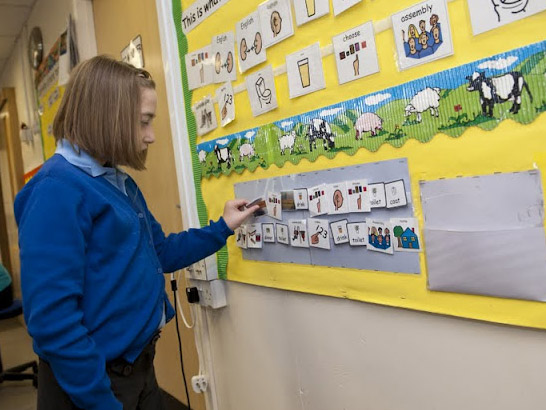
Children store their PECS symbols in a personalised portable communication book which can be used at home, at school and in the community.
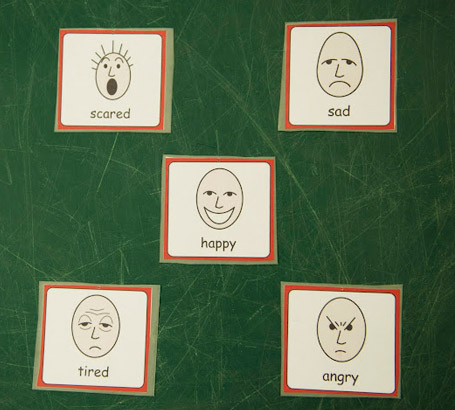
'Makaton' and 'Signalong' are augmentative communication systems that are widely used in special schools.
Makaton, which is used nationally and internationally, was originally developed as a simplified form of British Sign Language. It supports the communication of key words only. Signalong offers a broader range of signs.
Watch this video clip in which Debbie, a Makaton tutor, and Hazel, a teacher, talk about the benefits of using Makaton for communication learning and inclusion.
Watch this video clip in which Teresa, a class teacher, talks about a whole school approach to signing and how signs are learnt and consolidated.
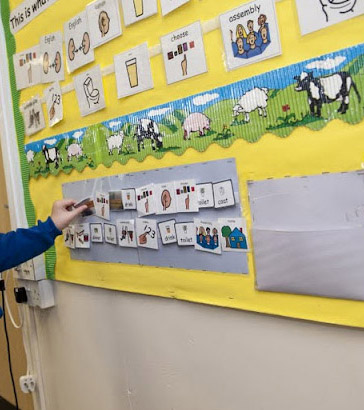
Signs are used to support speech, not to replace it. They provide an additional cue to support understanding.
When using signing to support the spoken word:
- Pick out the key information carrying words in a phrase;
- Model the correct spoken language with the intervening words, emphasising key words; and
- Adjust your pace so that your signs synchronise with the spoken word.
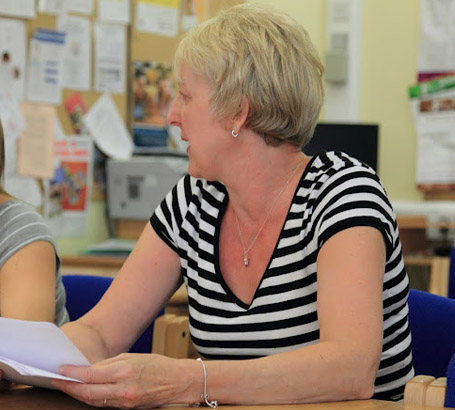
Review your school's practice in relation to the use of signs and symbols.
What are the strengths?
Are there areas that could be improved?
Make an action plan and discuss with colleagues how it might be implemented.
Evaluate the changes you make in terms of improvements in opportunities for communication.
Assistive technology
These two clips give a taste of how AAC can enable and motivate children to communicate.
For more details on AAC see the module Communication: augmentative and assistive strategies.
-
 Video 12:30Children participate interactively in a sensory story
Video 12:30Children participate interactively in a sensory story -
 Video 22:21Mark uses an iPad as a communication aid
Video 22:21Mark uses an iPad as a communication aid
